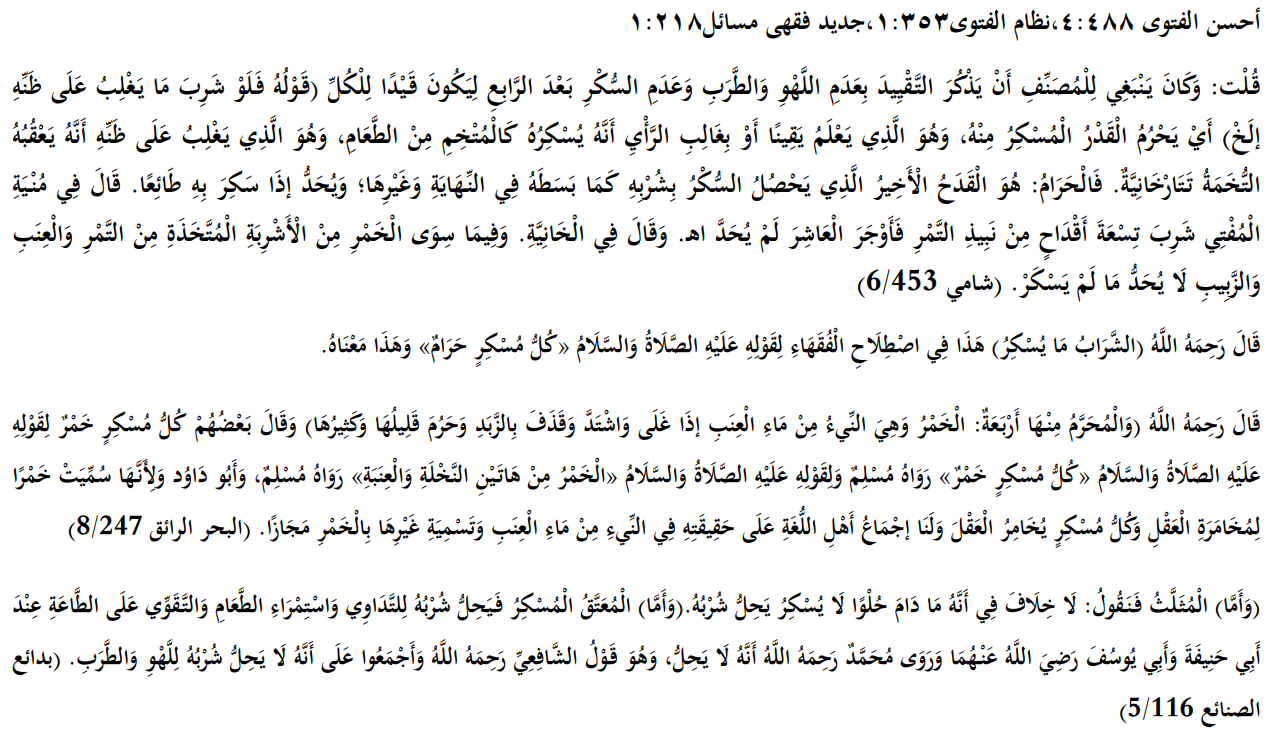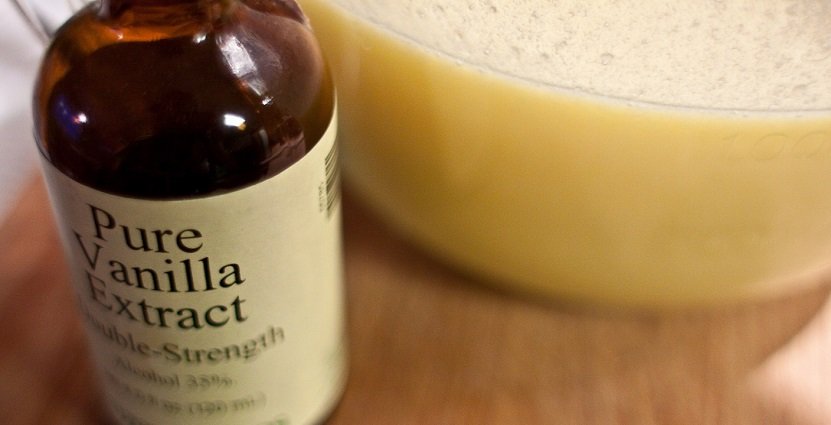Answered by Mufti Ismail Kotwal
Question:
What is the percentage of ethanol that is permissible in a food or drink product for consumption? What is the verdict on vanilla extract and almond extract, or any other extract, since the product itself contains a high level of alcohol, but when someone is using only a spoon full for baking, will the baked item be considered ḥarām?
Our investigations have revealed that almost 70% of products found in a typical grocery store contain some quantity of ethanol. Any product that has “natural and/or artificial flavour” ingredient listed will contain some amount of ethanol. If we were to follow the 0% rule than we can pretty much declare almost everything ḥarām. It is almost impossible to figure out the source of the alcohol from which the ethanol was derived, i.e. grape, wheat, corn, dates, etc. Even the manufacturers themselves who purchase ethanol in bulk do not know. Although, in Canada most of the food grade ethanol is from wheat, but other sources are also possible but difficult to investigate. It is almost impossible to figure out the precise amount of left over ethanol in the end product, even the manufactures are not able to tell, unless someone was to do lab testing of the products, there is no way to know the percentage of ethanol left over. This becomes an issue if someone was to say that 0.5% of ethanol is acceptable in a product, how would we know which products fall under and over this criteria?
Answer:
In the Name of God Most Merciful, Most Kind
Jazak Allah Khayr/ Thank you for your question.
In reference to your query, it should be understood that islamic jurists have divided alcohol into two categories, khamr alcohol and non-khamr alcohol. Khamr alcohol has been classified as that alcohol which is derived from dates and grapes whereas non-khamr alcohol is that alcohol which is derived from anything else, whether it is honey, barley, wheat, or petroleum. The ruling with regards to khamr alcohol is that even one drop of it is considered ḥarām (prohibited) and impure. As for non- khamr alcohol, there are two opinions within the Ḥanafī school of thought. Imam Muḥammad (may God have mercy on him) is of the opinion that it carries the same ruling as Khamr Alcohol. However, Imam Abū Hanīfah and Imam Abū Yūsuf (may God have mercy upon them) are of the opinion that it is permissible to consume non-Khamr alcohol in a non-intoxicating amount.
As mentioned in your query, due to the fact that the majority of products sold at grocery stores contain some amount of alcohol and it being very difficult to abstain from using such products, many scholars have issued the fatwa (Islamic legal ruling) based on the opinion of Imam Abū Ḥanifa and Imam Abū Yūsuf (may God have mercy on them) with the following conditions;
- It is not used as an intoxicant
- It is not used in the manner intoxicants are used
- It is not used in an amount that intoxicates
- It is not used in vain
After consulting many experts in the food manufacturing industry, we have reached the conclusion that due to high costs, alcohols used as an ingredient in food products are not sourced from dates or grapes, therefore the base assumption will be that alcohol in food products is non- Khamr. However, if one’s research proves that the alcohol in a certain product is sourced from dates or grapes, then it would not be permissible to consume it.
Based on the above, there is no doubt that those products which do not have alcohol listed as an active ingredient will be permissible to consume, as the amount of alcohol in those products is so minimal, that even if one was to consume the product to one’s fill, one would not get intoxicated.
As for those products which have alcohol listed as an active ingredient, such as vanilla essence, if it is used in a minimal, non-intoxicating amount, as vanilla essence is normally used, it cannot be considered ḥarām (prohibited), especially when the purpose of using such products is not the alcohol. Yes, if used in an excessive amount, where one fears it may lead to intoxication, it would not be permissible.
Also, it should be remembered, that as the verdict being issued on the opinion of Imam Abū Ḥanifa and Imam Abū Yūsuf (may God have mercy on them) is based on necessity and public predicament, it would be better to abstain from using such products when an alternative is easily available, especially in the case where alcohol is listed as an active ingredient.
It is also important to note, that based on the conditions mentioned above, it would not be permissible to consume a product where alcohol is the main purpose or which is consumed in the manner that intoxicants are consumed, such as alcoholic drinks etc.
(See: Aḥsan Al-Fatāwā, Nidhām Al-Fatāwā, Jadīd Fiqhī Masāiʿl, Al-Shāmī, Al-Baḥr Al-Rāiq, Badāi Al-Ṣanāʿi)
And Allah Taʾālā Knows Best





